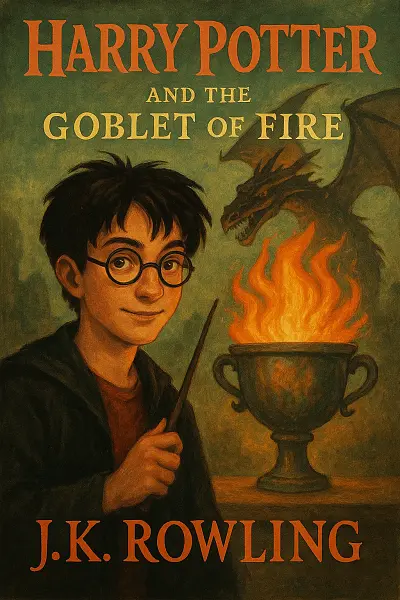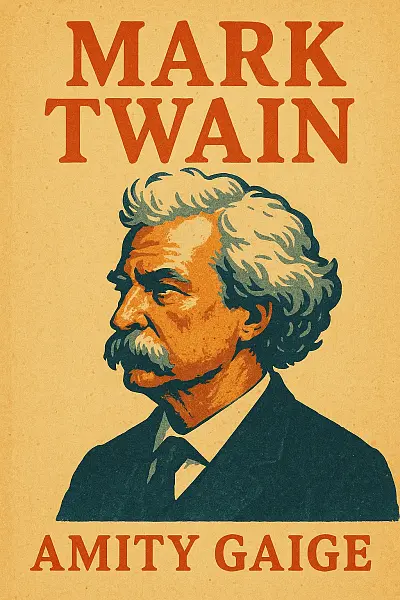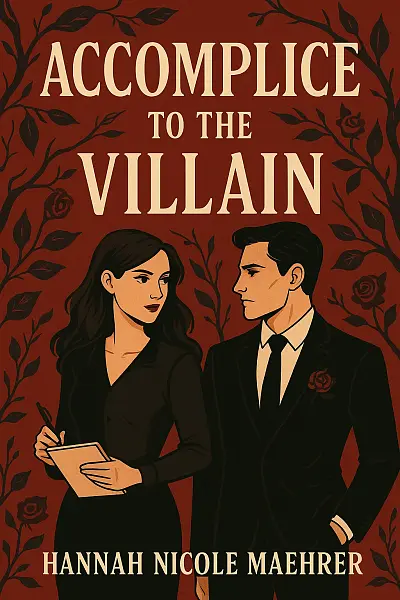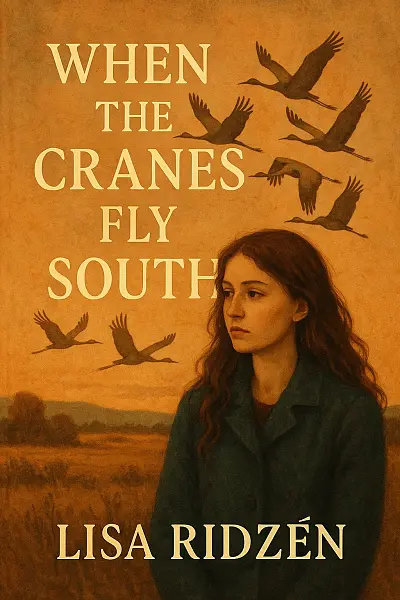
When the Cranes Fly South
by: Lisa Ridzén
Bo spends his days in quiet solitude, bound to his home and visited mostly by his care team. His faithful elkhound, Sixten, is his anchor in the slow drift of passing time—until his estranged son declares Bo too old to keep the dog, threatening to take Sixten away.
Suddenly, Bo’s world is tipped upside down. Fighting for Sixten, he's forced to confront years of stubborn distance and miscommunication. The battle for the dog becomes a battle for connection, making Bo question how he’s shown love—and whether it’s too late to change.
Told in gentle, reflective prose, this story creates a bittersweet, hopeful atmosphere that lingers on the question: can Bo finally bridge the gap with his son, or will fear and pride keep them apart?
"Sometimes, to find where we truly belong, we must learn to let go and trust the wind to carry us home."
Let's Break This Down
The Author's Voice
Atmosphere
Dreamy yet raw, the atmosphere in “When the Cranes Fly South” swoops between windswept northern landscapes and the hushed warmth of close-knit interiors. Ridzén conjures a sensory sweep—chill air, the wingbeats of distant cranes, a sense of gentle melancholy balanced with hope. The setting pulses with life: rivers glimmer, forests creak, and everywhere, there’s the hush of impending change. If you love novels that make you feel the weather and taste the air, this is your kind of book.
Prose Style
Lisa Ridzén’s prose is lyrical, yet never overwrought. Sentences drift with a poetic edge—lots of evocative imagery, a fondness for short, vivid paragraphs, and metaphors that surprise without trying too hard. Dialogue is spare but purposeful, letting silences reveal as much as words. She leans into simplicity at the right moments, letting the beauty of the ordinary world shine. That said, readers used to punchier or more straightforward language might find some passages a touch languorous.
Pacing
The pacing is unhurried, with a patient build that mirrors nature’s cycles—the novel lingers in seasons, moments, and small gestures. It’s a slow bloom kind of read, perfect for those who want to linger with characters and soak in atmosphere. There are bursts of momentum where emotions crest, but don’t expect adrenaline-fueled plot twists. For some, the pace may feel meditative; for others, it might verge on leisurely, but it’s thoughtfully intentional: every page is an invitation to look closer, breathe deeper, and feel alongside the characters.
Character Focus
Ridzén writes characters with a gentle, empathetic touch—they quietly ache and hope, shaped as much by what they don’t say as what they do. Internal landscapes are as vivid as the northern skies: lots of layered emotion, fleeting joys, and poignant loneliness. Background characters are sketched vividly enough to leave an impression, even if the core cast drives the story’s emotional weight. Relationships develop with subtlety and patience, rewarding close readers who love emotional nuance.
Overall Mood & Reader Experience
Expect a wistful, immersive vibe—bittersweet but never bleak, full of longing for flight and belonging. This is a novel for readers who savor mood, marvel at language, and want to be transported to places where silence speaks volumes. Pour a pot of tea, settle in, and let Ridzén’s writing carry you south with the cranes.
Key Moments
- Opening flashback: a childhood farewell beneath wheeling cranes
- Whispered secrets on the midnight lakeshore—betrayal comes softly
- Stunning prose: each migration scene feels like a painted canvas
- Ella’s desperate plea at the old train station—raw and unforgettable
- Themes of belonging and identity woven seamlessly with Nordic folklore
- The silent avalanche chapter: grief that settles like winter snow
- Last page revelation—hope flickers with the returning birds
Plot Summary
When the Cranes Fly South follows Elena Morozova, a Russian ornithologist whose passion is tracking the migration of Siberian cranes. Set against the backdrop of post-Soviet transition in the 1990s, Elena embarks on a perilous field study, joined by her estranged teenage son, Pavel. Their journey is complicated when Pavel disappears in the Siberian wilderness, forcing Elena to confront past wounds and the complex nature of motherhood. As Elena searches desperately, she uncovers not only Pavel’s location, but dark truths about herself, her family, and the environment’s precarious state. The novel culminates in a bittersweet reunion and a renewed sense of hope as the cranes depart, mirroring the characters’ own journeys toward healing and change.
Character Analysis
Elena is a driven, emotionally guarded scientist whose longing for connection is masked by professional rigor. Throughout the novel, she moves from isolation—both in her personal life and her research—to tentative vulnerability, especially as her relationship with Pavel is tested by survival and loss. Pavel starts as a sullen, resentful teenager, yet his time lost in the wild forces maturity and grants him a new appreciation for his mother’s dedication. Supporting characters like Yuri (Elena’s colleague) and Ekaterina (her mother) further highlight family tensions and the generational impact of Soviet history, each symbolizing choices between past and future.
Major Themes
Ridzén intertwines parental reconciliation and personal transformation with the fragility of nature, using the cranes as potent symbols of both migration and change. Environmental crisis looms throughout, paralleling the emotional devastation within Elena’s family—both require attention, care, and courageous adaptation. The pain of letting go, mirrored in the cranes’ departure and Elena’s relinquishing of Pavel into adulthood, underscores a theme of necessary loss on the path to renewal. The story also explores the legacy of trauma—generational wounds carried from state to family, and the power of compassion to spark recovery.
Literary Techniques & Style
Ridzén’s style is lyrical but precise, weaving scientific terminology into poetic landscapes, especially in her lush and sometimes haunting descriptions of Siberia. She frequently employs symbolism—the cranes themselves serve as metaphors for transition, endurance, and freedom. The narrative alternates between Elena’s and Pavel’s perspectives, allowing readers to experience their emotional and physical separations firsthand. Metaphors of migration and harsh weather accentuate internal emotional climates, while motifs of flight and return drive home the cyclical nature of both nature and human experience.
Historical/Cultural Context
Set during the turbulent 1990s, the novel captures Russia in flux: uncertain, hopeful, and wounded from decades of political repression. Social changes—like shifting gender roles and environmental neglect—deeply impact the characters’ lives and motivations. Ridzén draws on real-world concerns over Siberian wildlife decline and the precarious status of scientific research post-USSR, infusing the narrative with authentic urgency.
Critical Significance & Impact
When the Cranes Fly South has earned acclaim for its evocative prose, resonant themes, and nuanced portrayal of post-Soviet identity and ecology. The book stands out for integrating environmental and personal narratives, appealing to both literary and ecological audiences. Its lasting relevance lies in its honest exploration of healing—personal, familial, and ecological—making it a powerful text for discussions about trauma, renewal, and our relationship with the natural world.
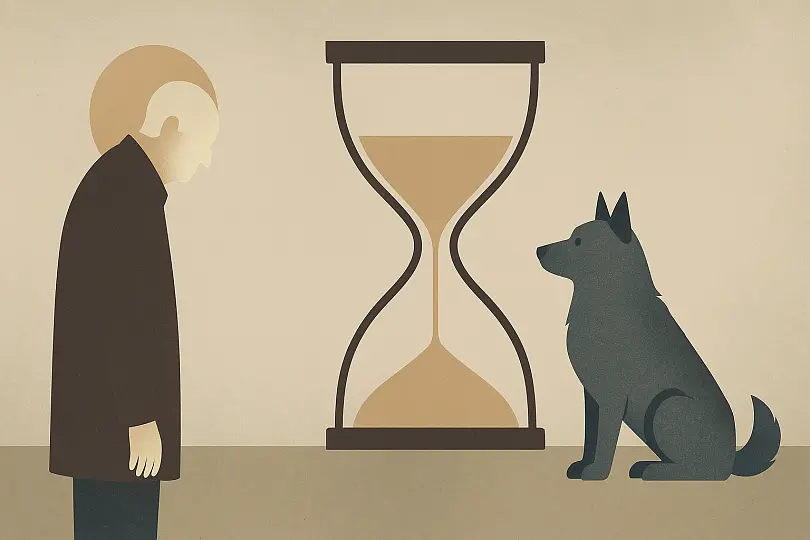
Migration, memory, and hope entwine in a lyrical portrait of renewal
What Readers Are Saying
Right for You If
If you’re into nature writing and quietly powerful stories about personal growth, When the Cranes Fly South is totally your vibe. This book is perfect for anyone who loves immersive, poetic descriptions of landscapes and wants to feel swept up in the rhythms of the natural world. Honestly, if you’re the type who marks your calendar for bird migrations or treasures the gentle wisdom in books like Pilgrim at Tinker Creek or The Overstory, you’re going to feel completely at home here.
- Fans of reflection-driven and introspective fiction will find a lot to sink their teeth into—expect a story that’s more about the journey and less about flashy plot twists.
- If you love soft, meditative pacing (think: cozying up with a mug of tea and letting the story wash over you), you’ve found your next read.
- Anyone fascinated by the cycles of change—in seasons or in life—will definitely connect with the themes.
But full transparency: if you’re after high drama, edge-of-your-seat suspense, or need your stories to move at breakneck speed, you might want to skip this one. The plot takes its time to unfold, and it’s really more about atmosphere, emotion, and small, meaningful moments than big explosive events.
Not ideal for those who prefer stories driven by action or those who get impatient with lyrical prose and lingering on the beauty of nature. But for readers who love to feel connected to the earth and the subtle shifts in people’s lives, this book’s like a breath of fresh air.
So, if you’re in the mood to slow down and get lost in a story that feels gentle, wise, and deeply rooted in place, give this one a chance—you might just find yourself looking at the world a little differently by the end.
What You're Getting Into
When the Cranes Fly South by Lisa Ridzén sweeps you into the quiet tension of a Nordic village where old traditions and modern hopes collide. As winter approaches, a young woman struggles to bridge the widening gap between her family's expectations and her yearning for independence, while the mysterious migration of cranes becomes a powerful metaphor for change. With lyrical prose and a touch of melancholy, this novel explores the tender complexities of belonging and the courage it takes to chart your own path.
Characters You'll Meet
-
Linnea: Reluctant yet resilient protagonist, Linnea navigates the pain of personal loss while adapting to a remote northern town. Her inner strength and gradual openness to change are central to the novel’s emotional journey.
-
Einar: Wise and gentle reindeer herder who becomes Linnea’s guide. Einar’s deep connection to tradition and nature provides both comfort and challenge, pushing Linnea toward self-discovery.
-
Kaisa: Warm, spirited neighbor who befriends Linnea. Kaisa’s welcoming nature helps Linnea find community, but her own struggles underscore the story’s nuanced portrayal of rural life.
-
Mattis: Reserved, loyal childhood friend of Linnea, whose quiet presence anchors her in moments of doubt. His complex feelings add depth to the evolving relationships in the village.
-
Ritva: Elderly matriarch and storyteller, Ritva embodies the wisdom of generations. Her haunting tales and sharp insights illuminate the book’s central themes of memory, loss, and belonging.
More Like This
If you found yourself swept away by the quiet intimacy and lush landscapes of Where the Crawdads Sing by Delia Owens, When the Cranes Fly South will feel like returning to a beloved atmosphere—both novels linger in the intersections of nature and solitude, exploring the way the wild mirrors human longing and resilience. Fans of Kristin Hannah’s The Great Alone will also sense familiar emotional currents; Ridzén’s depiction of survival, both literal and emotional, amid shifting seasons and personal upheaval taps into a similar vein of hope and endurance that Hannah’s readers cherish.
On the screen, there’s a gentle kinship to the visual poetry of The Secret Life of Walter Mitty, especially in how both stories lean into breathtaking landscapes and quiet self-discovery. Just as Walter’s journey blurs the line between internal dreams and external adventure, Ridzén deftly conjures the inner transformations that arise when one is thrust into unfamiliar territory, making it impossible not to draw parallels between her protagonist’s journey and Mitty’s own pursuit of meaning amid the ordinary.
Critic's Corner
What remains when the world shrinks to the walls of your own home? Lisa Ridzén’s "When the Cranes Fly South" asks uncomfortable but vital questions about aging, regret, and the possibility of late-life grace. Few novels confront the subtle indignities and quiet hopes of the final stretch of life with such honesty, forcing us to consider how love—imperfect, stubborn, sometimes clumsy—can shape, scar, and redeem us in our most vulnerable moments.
*Ridzén writes with a spare intimacy that feels tailor-made for Bo’s shrinking world. Dialogue is used sparingly; instead, interiority dominates, immersing the reader in Bo’s emotional weather. The prose is unflashy yet laced with sensory detail—a kettle humming in a silent kitchen, the reassuring weight of fur beside him—that gives the mundane a poignant shimmer. It’s a voice that trusts the reader to catch the undercurrents: resentment masked as concern, love disguised as irritation.
The structure is quietly clever: instead of conventional flashbacks, memories surface as intrusive thoughts, blending seamlessly with Bo’s present reality. This technique beautifully mirrors the way the past invades the present in old age, especially when loss looms. Ridzén resists melodrama, letting tension build through missed conversations and unspoken apologies, inviting us to read between the lines rather than spelling everything out. If there’s a flaw here, it’s a tendency for certain passages to linger too long on the verge of inertia, with pacing sagging as reflection borders on repetition. Still, this patience with the ordinary makes the moments of emotional intensity hit all the harder.
At its core, "When the Cranes Fly South" orbits the ache of estrangement and the longing to reconnect— not only with loved ones but also with oneself. Bo’s impending loss of Sixten, his loyal elkhound, is both an ecological metaphor (the cranes’ migration marking seasons of change) and a deeply personal crisis. Ridzén examines the complicated ways masculinity, pride, and generational expectations fracture communication between fathers and sons.
The novel deftly explores how care—given and received—can feel both life-affirming and humiliating, offering a nuanced view of late-life dependency rarely depicted so gently. In the shadow of mortality, Ridzén refuses to sanitize regret or euphemize grief, yet manages to suggest that even the smallest gestures—a cup of tea poured, a dog’s head patted—can bring transcendence. What makes the book so timely is its attention to the hidden epidemic of elder loneliness and the fragile bonds that sustain us, even after years of disappointment.
Within contemporary Scandinavian literary fiction, Ridzén’s work stands alongside authors like Fredrik Backman and Per Petterson, but she is less whimsical, more quietly devastating. Her focus on old age, animal companionship, and fractured family places this novel compellingly between the understated emotionality of Kent Haruf’s "Our Souls at Night" and the stark realism of Tove Jansson’s later fiction. Readers looking for hope without sentimentality will find much to admire here.
If its pace sometimes drags and its interiority risks insularity, the novel’s emotional clarity and refusal of clichés more than compensate. "When the Cranes Fly South" is an unsparing, unexpectedly luminous meditation on endings—and the tender, imperfect ways we try to begin again. This is a quiet triumph, best read with patience and an open heart.
Community Thoughts
i finished When the Cranes Fly South and now I can't stop thinking about that scene by the frozen lake. The quiet tension, the breathless cold, everything changed in a heartbeat. Still shivers.
Why did I keep picturing Anya at 3 a.m.? That girl is like a shadow in my mind. Every time I closed my eyes, I felt her staring back, asking questions I couldn’t answer. Seriously, how do you move on from that?
I still can't shake that scene by the river, cranes wheeling above, when Elin finally let go. The whole book pivots there, and it left me breathless. I keep replaying it in my head.
i picked up When the Cranes Fly South thinking i'd skim but NOPE, i was glued to the page after that bonkers reveal in chapter seven. couldn’t sleep, kept imagining wings beating outside my window. what did i just read??
okay, so that scene where the cranes actually started circling overhead and the protagonist just stood there, frozen, totally got me. i could practically feel the wings beating. unforgettable and so vivid!
Leave Your Review
Local Take
Why It Matters
When the Cranes Fly South by Lisa Ridzén really hits home for readers in Sweden, echoing layers of nostalgia and modern unease. The book’s themes—like leaving behind tradition, intergenerational ties, and finding belonging—mirror Sweden’s waves of rural-to-urban migration and the struggle to balance old customs with new lifestyles.
- Historical echoes: The storyline about families facing change will remind Swedes of the mass migration periods, when economic shifts pushed people from countryside to city, or even abroad.
- Cultural values: There’s a subtle clash between Swedish ideals of lagom (balance/moderation) and the emotional turmoil the characters endure. The introspective, nature-focused scenes speak to Swedes’ deep bond with land and seasons.
- Why it hits differently: Subtle moments of isolation or longing—so present in Swedish storytelling—feel especially poignant here. The understated prose fits right into the local tradition, yet it challenges the norm by dwelling more on grief and uncertainty than on quiet resilience.
- Literary tradition: The book nods to Swedish masters like Moberg and Lagerlöf, but its rawness also feels like a gentle push against the reticence typical of classic Swedish fiction. It makes readers rethink what it means to go “south”—both literally and emotionally.
Food for Thought
Notable Achievement:
When the Cranes Fly South by Lisa Ridzén made waves by winning the Swedish Book Award for New Voices, and it's been celebrated for bringing greater awareness to underrepresented Sámi perspectives in Scandinavian literature. This thoughtful debut has sparked meaningful conversations among readers about cultural identity and environmental stewardship, helping it cultivate a passionate, growing following.
Like what you see? Share it with other readers



